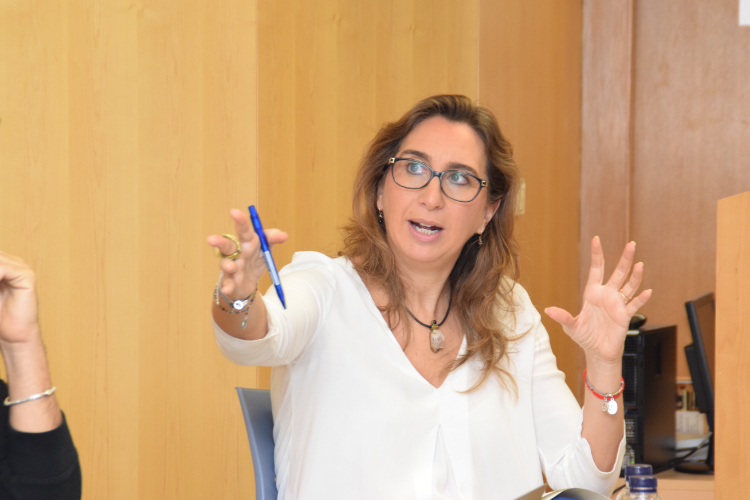“Buenas prácticas en políticas de género en sector turismo” (Best practice in gender policies in the tourism sector) is the title of the virtual seminar offered by HTSI professor and researcher Daniela Freund.

“Buenas prácticas en políticas de género en sector turismo” (Best practice in gender policies in the tourism sector) is the title of the virtual seminar offered by HTSI professor and researcher Daniela Freund. This seminar was organized by Barcelona Activa for professionals from the tourism sector.
Tourism is one of the sectors with the highest levels of female employment: 57% globally and 58.5% in the European Union. In Spain, the tourism sector is the third most important employer of women, after the educational sector and social work/healthcare.
However, a deeper analysis reveals that female employees of the Spanish tourism sector do not enjoy the same opportunities as their male counterparts. Regarding university training, 70% of graduates in tourism and hospitality in Catalonia are women. Nevertheless, women are seriously underrepresented in company leadership positions as a result of so-called “vertical segregation”.
As Freund explained, “professions with a majority of female staff, or ‘feminized occupations’—hotel maids, for example—have much lower pay and poorer working conditions.” This phenomenon is called “horizontal segregation”.
Although the gender pay gap has been reduced in the tourism sector, it is still above 15%. Professor Freund reminded the audience that, due to this difference, women essentially work for free from November 11 until the end of the year.
Why aren't we making any progress?
Why aren’t we making any progress in equality? The reasons are many. One is unconscious bias: “we all have beliefs that make us value women and men differently.”
Besides a lack of awareness and a denial of the issue in many companies, these barriers are defined by concepts like “sticky floor” (difficulty escaping from low-prestige positions), “glass ceiling” (difficulty reaching decision-making positions), microsexism, or a lack of references.
This seminar included the authors of the investigation “¿Se enfrentan las mujeres a barreras por razón de género al emprender en el mercado turístico de Barcelona?” (Do women face gender barriers as entrepreneurs in Barcelona’s tourism market?). HTSI alumni Mireia Canut and María López shared the conclusions of their final project, recognized by Càritas Diocesana de Barcelona as the best in social topics.
Positive impacts on organizations
Beyond just being a matter of social justice, gender diversity and diversity in general provide a competitive advantage. They help to attract talent, strengthen innovation and improve financial results.
Eva Vila-Massanas of WeEQUAL, an organization that helps to promote opportunities, diversity and inclusion, explained the benefits of equality and diversity for companies. Vila-Massanas also discussed current regulations and plans for levelling the playing field.
“Equality and diversity are social demands. It’s not just about aesthetics, it’s about ethics. They can be key to growth in companies”, she affirmed.
The effects of equality on organizations include better results, greater creativity and successful innovation ratios, improved customer service, improved image and customer perception, greater productivity, and talent retention and improvement.
The seminar concluded with a group reflection on what we can do to make equal opportunities real and generalized: demand active public policies and compliance, fight for a more egalitarian and inclusive society free of prejudice and discrimination, work on unconscious biases, reject microsexism, educate in gender-free talent, and share responsibility.
The School of Tourism and Hospitality Management Sant Ignasi is once again a point of reference in the development and training of the professional talent 21st-century companies and organizations need.










